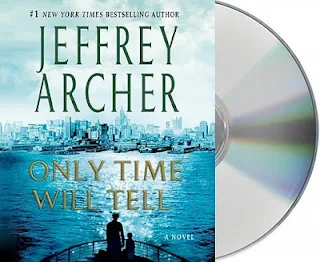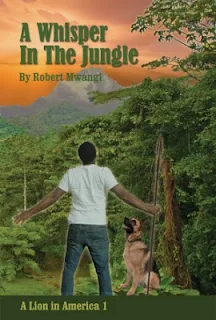 |
| Author, Robert Mwangi |
It gives me pleasure today to bring you my interview with Robert Mwangi, author of A Whisper In The Jungle - A Lion in America 1, recently reviewed on Carpe Librum where I gave the debut novel set in Kenya, 4 stars. Click here for the review.
Robert, can you tell us what was the hardest part of writing A Whisper In The Jungle - A Lion in America 1?
Free writing is easy because you put your head down and let the fingers do the talking. Editing is the hardest part about writing. When I was writing this book, I was forced to cut out chapters that were too close to home and some of these chapters were fantastic. It hurt to discard them. The other hard thing to write was the last chapter. I mean at what point do you decide that okay, this is a great ending, that this is a point that will make a reader go like ‘wow!’ It’s a tough question.
Do you listen to music when you write?
Many a times I find myself on YouTube browsing songs on my desk computer. And then I come across a song that makes me go very still. I hit the replay button, again and again. It gets dark outside but I don’t notice. I hit replay again. And then suddenly, the music stops and I jump up and turn on the lights. I rush into the kitchen and make a cup of tea. And then I get back on the computer and start typing furiously. The music has stopped but actually, its still playing in my head. I free write for almost an hour. And then I save and exhale. I don’t edit until a day or two later.
Much of A Whisper In The Jungle takes place outdoors, do you ever like to write outside?
In ancient times, our ancestors were guided by their innate connection to their spirit. Life was about deep listening and acting accordingly. They called it the teaching of the hollow bone and it goes like this.
If you find an old bone in the woods, it has been cleaned out by insects or animals and appears to be pristine. The insides are absolutely smooth. When you become a hollow bone, you have no ego, no doubts, no pride. Just humility. The spirit can now come straight to you and straight through you. You read a book clearly or type on a laptop without pause.
How do you become a hollow bone? For me, I go to the woods or a quiet park. I see the children and the dogs running: the couple taking a walk, the girl reading a book under a tree. Some people close their eyes to clear their minds, I don’t.
 I look at the serene scene around me and it clears my mind, I ground myself and breathe my spirit into my body. I listen with my heart. And then I write, not on a laptop but in my head. I write a whole story in my head and when I get home, I quickly rewrite it on the computer.
I look at the serene scene around me and it clears my mind, I ground myself and breathe my spirit into my body. I listen with my heart. And then I write, not on a laptop but in my head. I write a whole story in my head and when I get home, I quickly rewrite it on the computer.
Given that you were born in Kenya, but now live in America, do you consider yourself a Kenyan author or American author or just a writer?
We shouldn’t put labels on ourselves because it only limits the height of our achievement. Fly like a bird and write about the whole world: from Africa to Paris to Saudi Arabia. Having said that, it’s also important that we recognise our writing strength and its mostly going to be that innate thing inside us that we write about without doing research. That’s who we are.
Are there any current writers in Kenya that you'd like to mention?
I grew up reading Ngugi wa Thiong’o’s books. He is the best writer in Kenya and the genius of his work is in the simplicity of his writing. When I became an adult I read the books again and realised that all Ngugi had done was tell the stories of his generation from the bottom of his heart. Charles Dickens says that: "a writer who is natural has fulfilled the rules of art".
What authors have inspired you over the years?
Frank Peretti's book The Present Darkness has resonated with me since I was 16. I read my mum’s Danielle Steel books as a kid and most romantic stories I tell are founded from that basic reading. Lately, the descriptive writing of John Hart and Clive Cussler have inspired me immensely.
What is the sequel to A Whisper In The Jungle - A Lion in America 1 called? When is it due to be published?
The American Journey is the name of the sequel and will be published - God willing - in Africa sometime in 2013. Here's a synopsis:
An African boy undertakes an amazing journey across the Atlantic Ocean, and against all odds tries to find his place in a 21st Century world, without betraying the people he loves and without losing his own identity.
I wrote this book thinking about a village boy in the darkest corner of Africa. I want this book to be a guideline for him; that when his time comes to take the reigns and curve his own destiny, then he will be ready because of this book. Through romance and adventure, A Lion in America 2 blurs the margins between the old and the new world.
Anything else you'd like to add?
Yes. If you have a dream, go for it. Other people who have tried and failed will try and dissuade you. Don’t listen to them. As for writers, write because it makes you happy. Marianne Williamson says that: "we are to do only that which is psychologically and emotionally imperative for us to do." www.robert-mwangi.com
Thanks for those inspirational words Robert, and best of luck publishing the sequel!













































